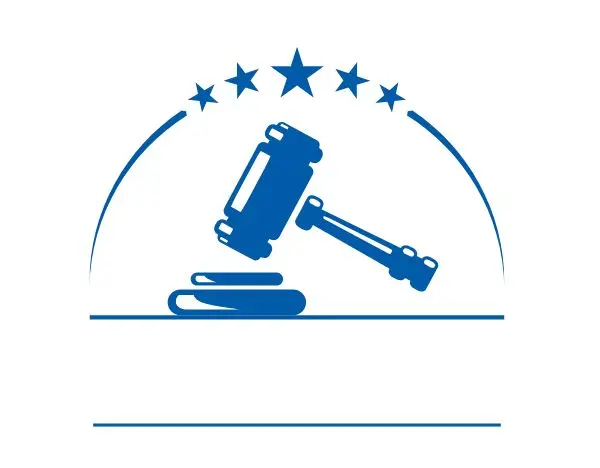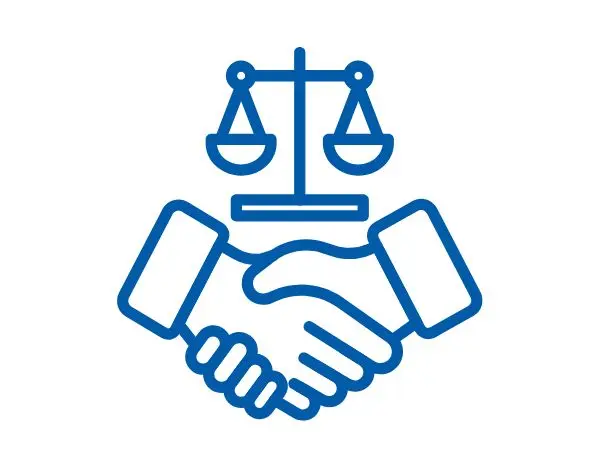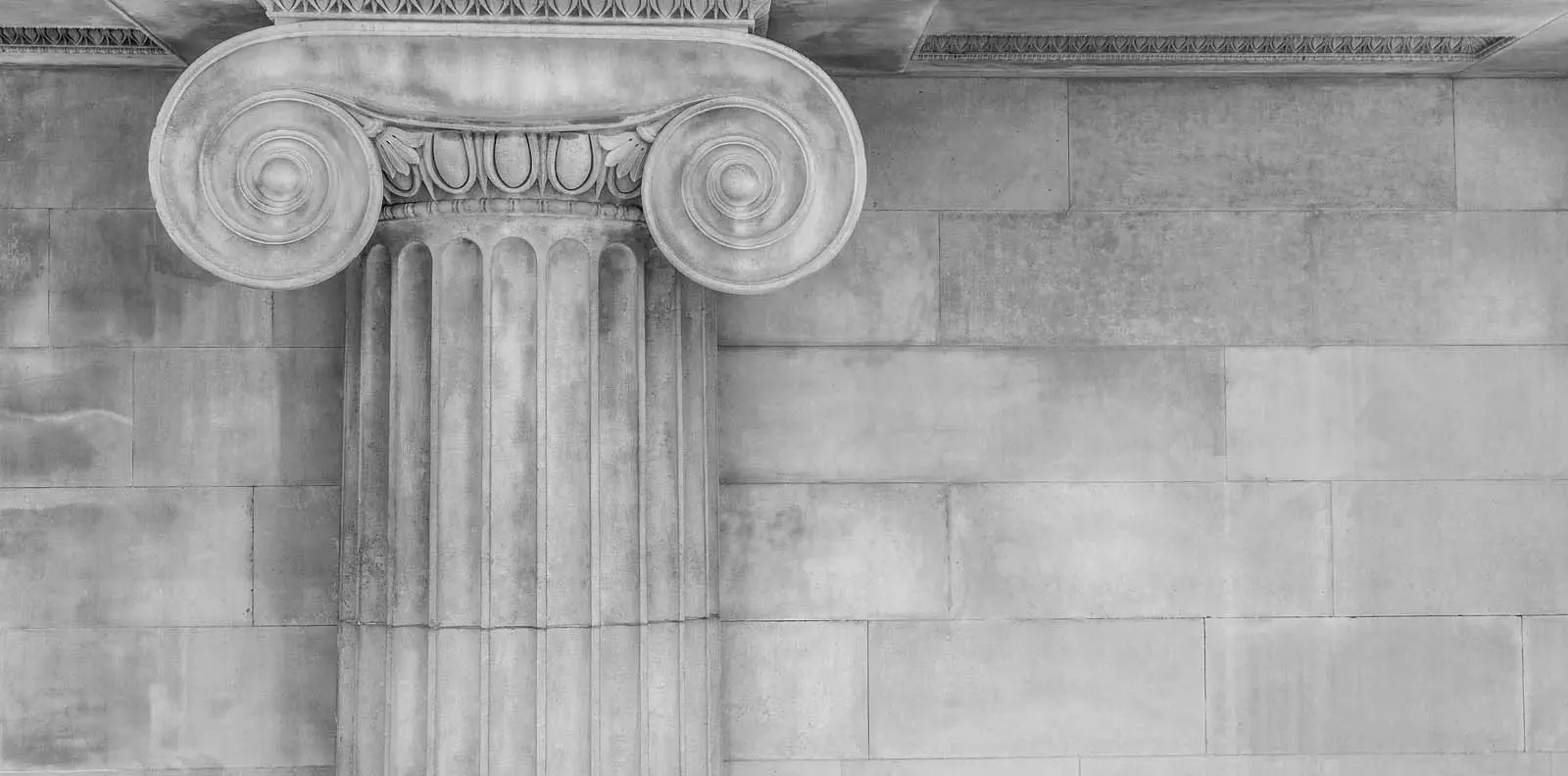Grand Larceny Defense Lawyer in Buffalo, New York
At Trbovich Law Firm, we understand the gravity of grand larceny charges and their potential impact on your life. As dedicated grand larceny defense lawyers serving Buffalo and Western New York, we are committed to providing robust legal representation to those facing these serious allegations.
Contact Trbovich Law Firm today for a confidential consultation about your grand larceny case.
What Constitutes Grand Larceny in Buffalo, New York?

In Buffalo, as in the rest of New York State, grand larceny is defined by the New York Penal Law. The specific statutes that define grand larceny are found in Article 155 of the New York Penal Law. There are four degrees of grand larceny, each with its own criteria:
Grand Larceny in the Fourth Degree
New York Penal Law § 155.30 defines Grand Larceny in the Fourth Degree. This is the most common form of grand larceny charge. The law states:
"A person is guilty of grand larceny in the fourth degree when he steals property and when:
- The value of the property exceeds one thousand dollars; or
- The property consists of a public record, writing or instrument kept, filed or deposited according to law with or in the keeping of any public office or public servant; or
- The property consists of secret scientific material; or
- The property consists of a credit card or debit card; or
- The property, regardless of its nature and value, is taken from the person of another; or
- The property, regardless of its nature and value, is obtained by extortion; or
- The property consists of one or more firearms, rifles or shotguns, as such terms are defined in section 265.00 of this chapter; or
- The value of the property exceeds one hundred dollars and the property consists of a motor vehicle, as defined in section one hundred twenty-five of the vehicle and traffic law, other than a motorcycle, as defined in section one hundred twenty-three of such law; or
- The property consists of a scroll, religious vestment, vessel or other item of property having a value of at least one hundred dollars kept for or used in connection with religious worship in any building or structure used as a place of religious worship by a religious corporation, as incorporated under the religious corporations law or the education law.
- The property consists of an access device which the person intends to use unlawfully to obtain telephone service.
- The property consists of anhydrous ammonia or liquefied ammonia gas and the actor intends to use, or knows another person intends to use, such anhydrous ammonia or liquefied ammonia gas to manufacture methamphetamine."
Grand Larceny in the Third Degree
New York Penal Law § 155.35 defines Grand Larceny in the Third Degree:
"A person is guilty of grand larceny in the third degree when he or she steals property and:
- when the value of the property exceeds three thousand dollars, or
- the property is an automated teller machine or the contents of an automated teller machine."
Grand Larceny in the Second Degree
New York Penal Law § 155.40 defines Grand Larceny in the Second Degree:
"A person is guilty of grand larceny in the second degree when he steals property and when:
- The value of the property exceeds fifty thousand dollars; or
- The property, regardless of its nature and value, is obtained by extortion committed by instilling in the victim a fear that the actor or another person will (a) cause physical injury to some person in the future, or (b) cause damage to property, or (c) use or abuse his position as a public servant by engaging in conduct within or related to his official duties, or by failing or refusing to perform an official duty, in such manner as to affect some person adversely."
Grand Larceny in the First Degree
New York Penal Law § 155.42 defines Grand Larceny in the First Degree:
"A person is guilty of grand larceny in the first degree when he steals property and when the value of the property exceeds one million dollars."
These definitions apply to Buffalo and all of New York State. The specific degree of grand larceny charged depends on the value of the property allegedly stolen and the circumstances of the theft. It's important to note that grand larceny is always considered a felony offense in New York, regardless of the degree.
Penalties of a Grand Larceny Conviction in New York
In New York State, including Buffalo, grand larceny is always classified as a felony offense. The severity of the penalties correlates with the degree of the grand larceny charge. Here's a breakdown of the potential consequences for each degree:
Grand Larceny in the Fourth Degree (NY Penal Law § 155.30)
- Classification: Class E Felony
- Maximum Prison Sentence: Up to 4 years
- Probation: Up to 5 years
- Fine: Up to $5,000 or double the amount of the defendant's gain from the crime
Grand Larceny in the Third Degree (NY Penal Law § 155.35)
- Classification: Class D Felony
- Maximum Prison Sentence: Up to 7 years
- Probation: Up to 5 years
- Fine: Up to $5,000 or double the amount of the defendant's gain from the crime
Grand Larceny in the Second Degree (NY Penal Law § 155.40)
- Classification: Class C Felony
- Maximum Prison Sentence: Up to 15 years
- Probation: Up to 5 years
- Fine: Up to $15,000 or double the amount of the defendant's gain from the crime
Grand Larceny in the First Degree (NY Penal Law § 155.42)
- Classification: Class B Felony
- Maximum Prison Sentence: Up to 25 years
- Probation: Not available (a prison sentence is mandatory)
- Fine: Up to $30,000 or double the amount of the defendant's gain from the crime
Additional Grand Larceny Consequences
Beyond the immediate legal penalties, a grand larceny conviction can have far-reaching consequences:
- Permanent Criminal Record: A felony conviction stays on your record, potentially affecting future employment opportunities, housing applications, and more.
- Professional Licenses: Many professional licenses can be suspended or revoked upon a felony conviction.
- Immigration Status: For non-citizens, a felony conviction can lead to deportation or ineligibility for naturalization.
- Voting Rights: Felons lose their right to vote while incarcerated and on parole in New York.
- Firearm Ownership: Federal law prohibits felons from owning or possessing firearms.
- Restitution: In addition to fines, the court may order the defendant to pay restitution to the victim, covering the full value of the stolen property.
- Civil Liability: The victim may also file a civil lawsuit to recover damages.
How a Grand Larceny Defense Lawyer Can Help

At Trbovich Law Firm, we understand the stress and uncertainty that come with facing grand larceny charges in Buffalo and Western New York. As experienced grand larceny defense lawyers, we're committed to providing robust legal representation to protect your rights and fight for the best possible outcome in your case. Here's how we can help:
Grand Larceny Case Evaluation and Strategy Development
When you choose Trbovich Law Firm, we begin with a thorough evaluation of your case. This involves reviewing police reports, witness statements, physical evidence, and surveillance footage. We also analyze the prosecution's case for potential weaknesses. Based on this comprehensive evaluation, we develop a tailored defense strategy designed to achieve the best possible outcome for your specific situation.
Protection of Your Constitutional Rights After Grand Larceny Charges
As your grand larceny defense lawyers, we ensure that your constitutional rights are protected throughout the legal process. We scrutinize the circumstances of your arrest and any searches conducted, ensure that you were properly informed of your rights, and challenge any evidence that may have been obtained illegally. If we find that your rights were violated at any point, we can file motions to suppress evidence or even have the charges dismissed.
Negotiation with Prosecutors
In many cases, grand larceny charges can be resolved without going to trial. Our Buffalo criminal defense attorneys are skilled negotiators who can present mitigating factors to the prosecution, argue for reduced charges or penalties, and explore alternative sentencing options, such as diversion programs or restitution agreements. Our goal is always to achieve the most favorable outcome possible, whether that means reducing charges, minimizing penalties, or dismissing charges entirely.
Building a Strong Grand Larceny Charge Defense
If your case goes to trial, you can count on Trbovich Law Firm to build a strong defense. We challenge the prosecution's evidence, cross-examine witnesses to expose inconsistencies, present alternative case theories, and call expert witnesses when necessary. We leverage our extensive experience in grand larceny cases to craft compelling arguments that cast doubt on the prosecution's case.
Mitigation of Grand Larceny Conviction Penalties
Even in cases where some form of conviction is unavoidable, we work tirelessly to mitigate the penalties you face. This can include arguing for minimum sentences, advocating for alternative sentencing options, and presenting character evidence and other mitigating factors to the court. Our goal is always to minimize the impact of the charges on your life, freedom, and future.
Guidance Throughout the Legal Process
Navigating the criminal justice system can be overwhelming. As your grand larceny defense lawyers, we provide clear explanations of the charges you're facing and potential consequences, regular updates on the status of your case, advice on how to conduct yourself during the legal proceedings, and emotional support and reassurance during this challenging time. We ensure you're informed and prepared at every stage of the process.
Post-Conviction Options
If you've already been convicted of grand larceny, we can still help. Trbovich Law Firm can assist with filing appeals, seeking sentence modifications, and pursuing post-conviction relief. We're committed to exploring every available avenue to protect your rights and interests.
Potential Defenses in Grand Larceny Cases
At Trbovich Law Firm, we employ a range of defense strategies tailored to the specific circumstances of each grand larceny case. Some common defenses we might consider include:
- Lack of intent: Demonstrating that you did not intend to permanently deprive the owner of their property, which is a crucial element of larceny.
- Claim of right: Showing that you had a good faith belief that you had a right to the property in question.
- Consent: Proving that the property owner gave you permission to take or use the property.
- Mistaken identity: Challenging the prosecution's evidence that you were the person who committed the alleged theft.
- Duress: Arguing that you were forced to commit the act under threat of harm to yourself or others.
- Entrapment: Demonstrating that law enforcement induced you to commit a crime you wouldn't have otherwise committed.
- Insufficient evidence: Challenging the prosecution's ability to prove all elements of the crime beyond a reasonable doubt.
- Improper valuation: Contesting the alleged value of the stolen property, which could reduce the severity of the charges.
- Violation of constitutional rights: Suppressing evidence obtained through illegal searches or seizures, or statements made in violation of your Miranda rights.
- Statute of limitations: Arguing that the time limit for prosecuting the alleged crime has expired.
Each case is unique, and the most effective defense strategy will depend on the specific facts and circumstances surrounding the charges. At Trbovich Law Firm, we carefully analyze every aspect of your case to determine the strongest possible defense.
The Trbovich Law Firm Difference

When you choose Trbovich Law Firm as your grand larceny defense lawyer, you're not just getting legal representation – you're gaining a dedicated advocate who will fight tirelessly for your rights and future. Our approach is characterized by:
- Personalized attention: We understand that every client's situation is unique, and we tailor our defense strategies accordingly.
- Clear communication: We keep you informed at every stage of the legal process, explaining complex legal concepts in easy-to-understand terms.
- Aggressive advocacy: Whether in negotiations or in the courtroom, we forcefully advocate for your interests.
- Comprehensive knowledge: Our team stays up-to-date with the latest developments in New York criminal law to provide you with the most effective defense possible.
- Local experience: As Buffalo criminal defense lawyers, we have extensive experience with the local court system and prosecutors, which can be advantageous in navigating your case.
What To Do If Charged with Grand Larceny in Buffalo
If you've been charged with grand larceny in Buffalo, it's crucial to take immediate and appropriate action to protect your rights and build a strong defense. At Trbovich Law Firm, we recommend the following steps:
- Remain silent: Exercise your right to remain silent. Anything you say can be used against you in court, so avoid discussing your case with anyone except your attorney.
- Request an attorney: Ask for a criminal lawyer immediately. Do not answer any questions or make any statements to law enforcement without your attorney present.
- Document everything: Write down everything you remember about the incident and your arrest as soon as possible. Include dates, times, locations, and names of any witnesses.
- Preserve evidence: If you have any evidence that might be relevant to your case, preserve it carefully. This could include receipts, communications, or other documents.
- Avoid social media: Refrain from posting anything about your case on social media platforms. Prosecutors can use your online activity as evidence against you.
- Attend all court appearances: Make sure you show up for all scheduled court dates. Failure to appear can result in additional charges or penalties.
- Comply with conditions: If you're released on bail, strictly adhere to all conditions set by the court. Violations could lead to revocation of your bail.
- Gather character references: Begin collecting character reference letters from respected individuals who can speak to your integrity and standing in the community.
- Maintain employment: If employed, try to keep your job. Steady employment can be viewed favorably by the court.
- Seek legal representation: Contact an experienced grand larceny defense attorney as soon as possible. The sooner you have legal representation, the better protected your rights will be.
Remember, being charged with grand larceny is serious, but it's not the same as being convicted. With proper legal guidance and a strong defense strategy, it's possible to achieve a favorable outcome. At Trbovich Law Firm, we're committed to providing the skilled representation you need during this challenging time.
What To Expect After Being Charged with Grand Larceny
Being charged with grand larceny can be a daunting experience. At Trbovich Law Firm, we believe that understanding the legal process can help alleviate some of your concerns. Here's what you can typically expect after being charged with grand larceny in Buffalo:
- Arrest and booking: If not already completed, you'll be formally arrested, photographed, fingerprinted, and your personal information will be recorded.
- Bail hearing: A judge will determine whether to set bail and, if so, the amount. This decision is based on factors like flight risk and community ties.
- Arraignment: You'll appear before a judge who will formally read the charges against you. You'll be asked to enter a plea of guilty, not guilty, or no contest.
- Grand jury proceedings: For felony charges like grand larceny, the case may be presented to a grand jury to determine if there's enough evidence to proceed to trial.
- Pre-trial motions: Your Buffalo criminal defense attorney may file various motions, such as to suppress evidence or dismiss charges, based on legal or procedural grounds.
- Discovery phase: Both the prosecution and defense will exchange evidence and information related to the case.
- Plea bargaining: Your grand larceny defense attorney may negotiate with the prosecutor for a plea deal, which could involve pleading guilty to a lesser charge in exchange for a more lenient sentence.
- Trial preparations: If a plea deal isn't reached, your criminal defense attorney will prepare for trial, which includes strategizing, gathering evidence, and preparing witnesses.
- Trial: If your case goes to trial, both sides will present their cases before a judge or jury. The prosecution must prove guilt beyond a reasonable doubt.
- Sentencing: If convicted, a separate sentencing hearing will be held where the judge determines the appropriate punishment based on various factors.
- Possible appeal: If there were legal errors during the trial, you might have grounds to appeal the conviction or sentence.
Remember, every case is unique, and the exact process may vary. At Trbovich Law Firm, we guide our clients through each step, ensuring they understand their rights and options throughout the legal proceedings.
Contact Trbovich Law Firm Today
If you or a loved one is facing grand larceny charges in Buffalo or Western New York, don't wait to seek legal representation. The sooner you involve a grand larceny defense lawyer, the better positioned you'll be to challenge the charges against you. Contact us today.
Grand Larceny Defense Lawyer FAQs
At Trbovich Law Firm, we often receive questions about grand larceny charges and defense. Here are some frequently asked questions and their answers:
Can grand larceny charges be reduced to petty larceny?
Yes, it's possible. Through negotiations with the prosecutor or by contesting the valuation of the allegedly stolen property, charges can sometimes be reduced from grand larceny to petty larceny, which is a misdemeanor rather than a felony.
How long does a grand larceny case typically take to resolve?
The duration can vary significantly, from a few months to over a year, depending on the complexity of the case, court schedules, and whether it goes to trial or is resolved through a plea agreement.
Will I go to jail if convicted of grand larceny?
While jail time is possible, it's not guaranteed. Factors such as the degree of the charge, your criminal history, and the effectiveness of your defense can influence the sentence. Alternative sentences like probation or restitution may be possible in some cases.
Can I get a grand larceny charge expunged from my record?
New York doesn't offer expungement, but you may be eligible for record sealing under certain circumstances, typically 10 years after sentencing or release from incarceration, provided you have no more than two misdemeanor convictions or one felony and one misdemeanor conviction.
What's the difference between grand larceny and burglary?
Grand larceny involves unlawfully taking property valued above a certain threshold, while burglary involves unlawfully entering a building with the intent to commit a crime, which may or may not include theft.
Can I be charged with grand larceny if I didn't physically take anything?
Yes. Grand larceny can include crimes like embezzlement or obtaining property by false pretenses, where you may not physically take the property but unlawfully deprive the owner of its use or value.
If I return the stolen property, will the charges be dropped?
Not necessarily. Returning property may be viewed favorably by the court, but it doesn't automatically result in dropped criminal charges after a theft crime. The prosecutor still has discretion to pursue the case.
How can a grand larceny conviction affect my future employment?
A felony conviction can significantly impact employment prospects. Many employers conduct background checks, and a grand larceny conviction may disqualify you from certain jobs, especially those involving financial responsibilities.
At Trbovich Law Firm, we're committed to addressing all your concerns about grand larceny charges. Every case is unique, so we encourage you to contact us for personalized advice regarding your specific situation.


